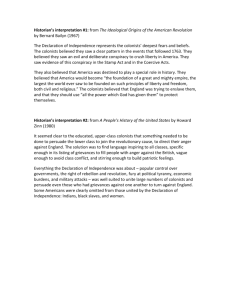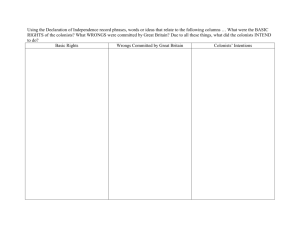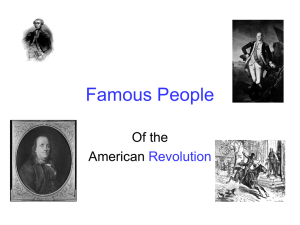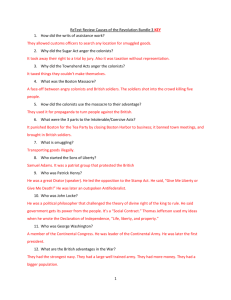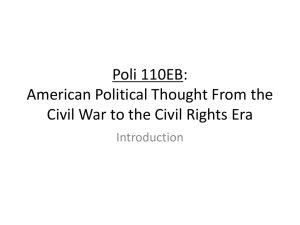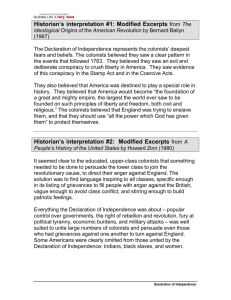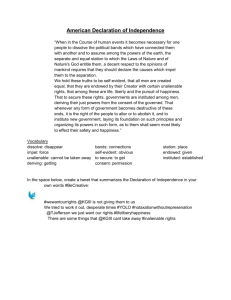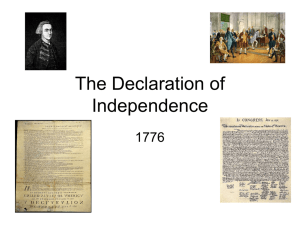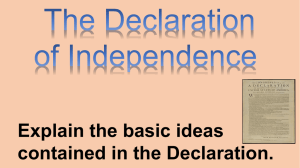Please do NOT mark on this document. U.S. History Declaration of
advertisement
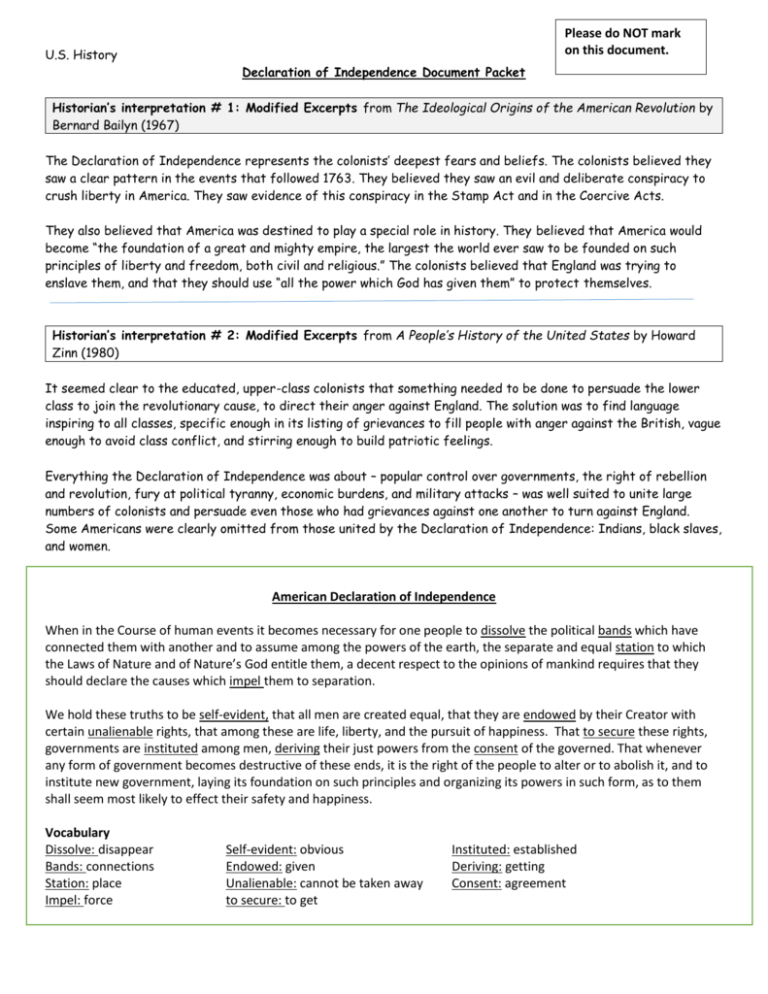
Please do NOT mark on this document. U.S. History Declaration of Independence Document Packet Historian’s interpretation # 1: Modified Excerpts from The Ideological Origins of the American Revolution by Bernard Bailyn (1967) The Declaration of Independence represents the colonists’ deepest fears and beliefs. The colonists believed they saw a clear pattern in the events that followed 1763. They believed they saw an evil and deliberate conspiracy to crush liberty in America. They saw evidence of this conspiracy in the Stamp Act and in the Coercive Acts. They also believed that America was destined to play a special role in history. They believed that America would become “the foundation of a great and mighty empire, the largest the world ever saw to be founded on such principles of liberty and freedom, both civil and religious.” The colonists believed that England was trying to enslave them, and that they should use “all the power which God has given them” to protect themselves. Historian’s interpretation # 2: Modified Excerpts from A People’s History of the United States by Howard Zinn (1980) It seemed clear to the educated, upper-class colonists that something needed to be done to persuade the lower class to join the revolutionary cause, to direct their anger against England. The solution was to find language inspiring to all classes, specific enough in its listing of grievances to fill people with anger against the British, vague enough to avoid class conflict, and stirring enough to build patriotic feelings. Everything the Declaration of Independence was about – popular control over governments, the right of rebellion and revolution, fury at political tyranny, economic burdens, and military attacks – was well suited to unite large numbers of colonists and persuade even those who had grievances against one another to turn against England. Some Americans were clearly omitted from those united by the Declaration of Independence: Indians, black slaves, and women. American Declaration of Independence When in the Course of human events it becomes necessary for one people to dissolve the political bands which have connected them with another and to assume among the powers of the earth, the separate and equal station to which the Laws of Nature and of Nature’s God entitle them, a decent respect to the opinions of mankind requires that they should declare the causes which impel them to separation. We hold these truths to be self-evident, that all men are created equal, that they are endowed by their Creator with certain unalienable rights, that among these are life, liberty, and the pursuit of happiness. That to secure these rights, governments are instituted among men, deriving their just powers from the consent of the governed. That whenever any form of government becomes destructive of these ends, it is the right of the people to alter or to abolish it, and to institute new government, laying its foundation on such principles and organizing its powers in such form, as to them shall seem most likely to effect their safety and happiness. Vocabulary Dissolve: disappear Bands: connections Station: place Impel: force Self-evident: obvious Endowed: given Unalienable: cannot be taken away to secure: to get Instituted: established Deriving: getting Consent: agreement

